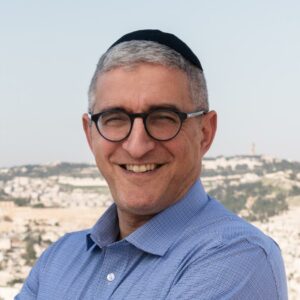Yom Kippur, the Day of Atonement, has just passed. It is the holiest date in the Jewish calendar, a time when Jewish communities around the world set aside everything else to focus on what matters most. The day is built around three central practices: teshuvah (repentance), tefillah (prayer), and tzedakah (charity). All three are seen as essential, and all three appear together in the prayers recited throughout the day. Repentance turns people back toward God, prayer lifts up the soul, and charity brings faith into action in the most concrete way possible.
For many, the fasting and hours of prayer are the most visible parts of the day. Yet Jewish teaching emphasizes that tzedakah carries an extraordinary spiritual weight. Charity is not simply a way to help those in need; it is a way to participate in God’s work of sustaining life. The sages taught that charity has the power to avert harsh decrees and to transform not only the recipient’s life but also the life of the giver. On Yom Kippur, when people stood before God seeking forgiveness and renewal, acts of generosity became a vital expression of sincerity and commitment.
Now, as we approach Sukkot, the Feast of Tabernacles, that same spirit of giving continues. In the days following Yom Kippur, Jewish families turn from introspection to joy, from solemn prayer to the celebration of life under the open sky. The transition is intentional. The awe of Yom Kippur flows naturally into the joy of Sukkot, reminding us that repentance must be followed by renewal and that true holiness is found in action.
There is another layer of meaning that carries through this season. In Hebrew, numbers hold symbolic value through gematria, a system that links letters and numbers. The number 18 corresponds to the Hebrew word chai, which means “life.” For centuries, Jews have given gifts in multiples of 18 as a way of saying that their gift is not just money but a blessing of life. To give 18 is to give chai. Coming so soon after Yom Kippur, when life, forgiveness, and renewal are at the heart of every prayer, this symbolism takes on even deeper significance.
That is why an $18 monthly gift takes on more than a financial meaning. It is a way of saying that life itself is being affirmed and protected. With that commitment, supporters of Israel are able to take part in projects that make a direct impact on the ground. The Israel365 Lone Soldier Center provides support and community for young men and women serving in the Israel Defense Forces without family in the country. The Sderot Elderly Day Care Center offers security and dignity for seniors living on the edge of constant rocket fire. Families displaced from their homes are given assistance, and communities in Judea and Samaria receive the backing they need to grow and flourish.
Educational and spiritual initiatives are also strengthened by this steady support. Bible study resources such as The Israel Bible bring the Hebrew Scriptures to life for a global audience, connecting readers with the land and people of Israel in new ways. News coverage through Israel365 News highlights current events in Israel while drawing attention to the role of faith and prophecy in the story unfolding today. Programs that bring young Christian leaders to Israel allow the next generation to witness the land of the Bible with their own eyes, preparing them to become advocates in their own communities.
All of this flows from the simple but profound decision to link the call of Yom Kippur with the joy of Sukkot, the reflection of atonement with the renewal of celebration. To give $18 is to take part in a tradition that bridges prayer and action. It is to give life in a very real sense, sustaining people and projects that embody the values of the Bible. It is also to join a story larger than any single individual, a story of Jews and Christians working together to strengthen Israel at a time when the nation faces both challenges and opportunities.
The prophet Isaiah captured this spirit when he declared, “For the sake of Zion, I will not be silent, and for the sake of Jerusalem, I will not be still, until her victory emerges resplendent and her triumph like a flaming torch” (Isaiah 62:1). Silence and passivity are not options. Yom Kippur calls for repentance and prayer; Sukkot calls for joy and gratitude. But both call for action. Charity is that action, visible in the lives of soldiers, seniors, families, and students who are touched by even the smallest daily contribution.
An $18 monthly gift therefore becomes much more than a donation. It is an affirmation of life. It is a continuation of the call to practice tzedakah beyond Yom Kippur, a way for people of faith, both Jewish and Christian, to stand with Israel as the season of reflection turns into the season of rejoicing.





